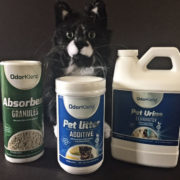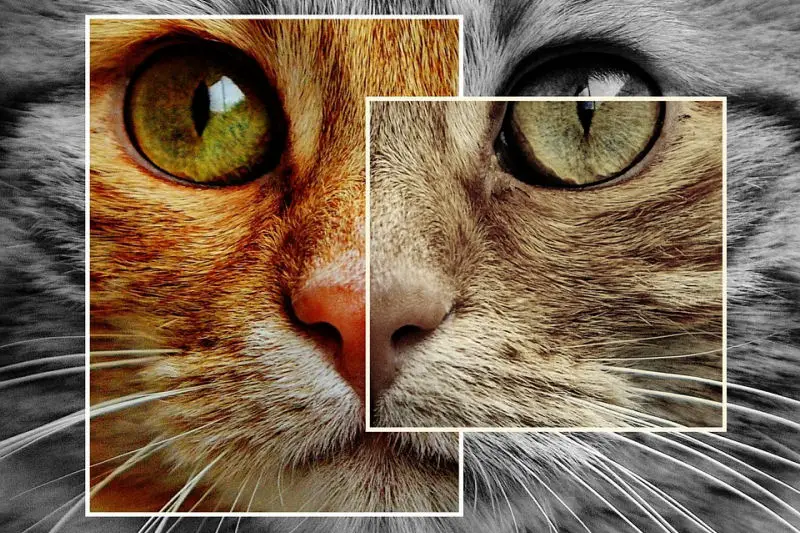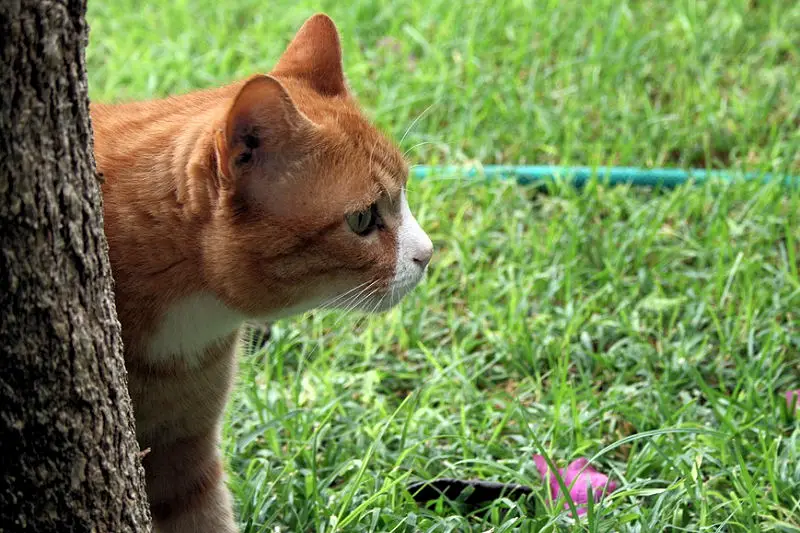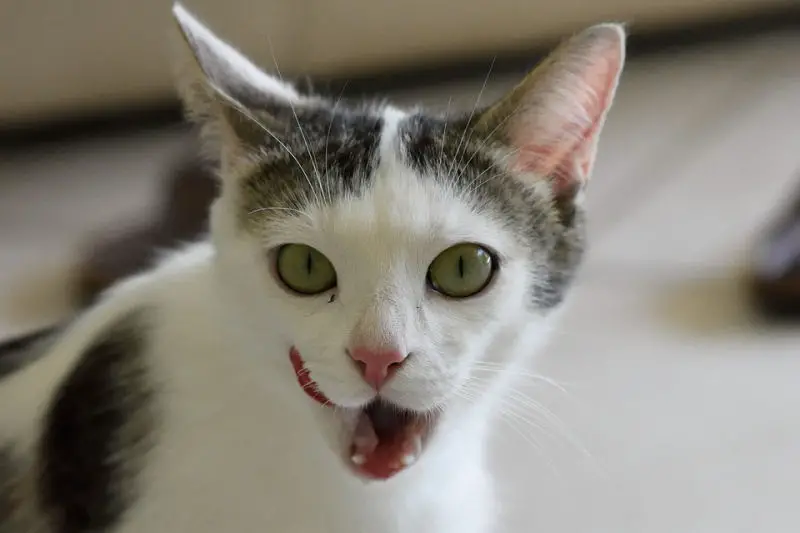Recently we posted an article called 5 Health & Nutrition Tips for Senior Cats. It seemed logical to ask our go-to expert Gillian Ridgeway {Nutram OTC Pet Wellness Expert} for her advice on kitten health and nutrition.
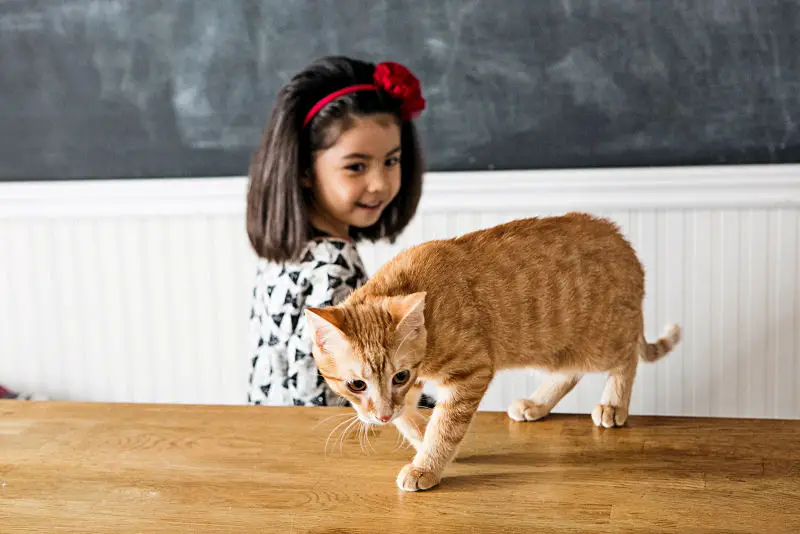
Here’s what she shared with us:
Adding a new baby kitten to your family can be a very exciting and fun time. From playtime to mealtime, your kitty will depend on you for all their day-to-day needs, which will leave you to make decisions like what ingredients to give them, when to feed them, and how to monitor their health.
To get your kitten started on a healthy path, here are four things to consider:
[clickToTweet tweet=”4 Expert Tips to Maximize Your Kitten’s Health & Nutrition” quote=”4 Expert Tips to Maximize Your Kitten’s Health & Nutrition”]
1. The Right Ingredients
Once your kitten has left mom at about 8 weeks of age, it is up to us as pet parents to make sure we have a nutritional plan moving forward. Kittens can have 2-3 times the energy needs of an adult cat, especially when they are going through a growth spurt. A nutrient-dense formula, geared specifically for kittens in this exploding growth stage is what is required.
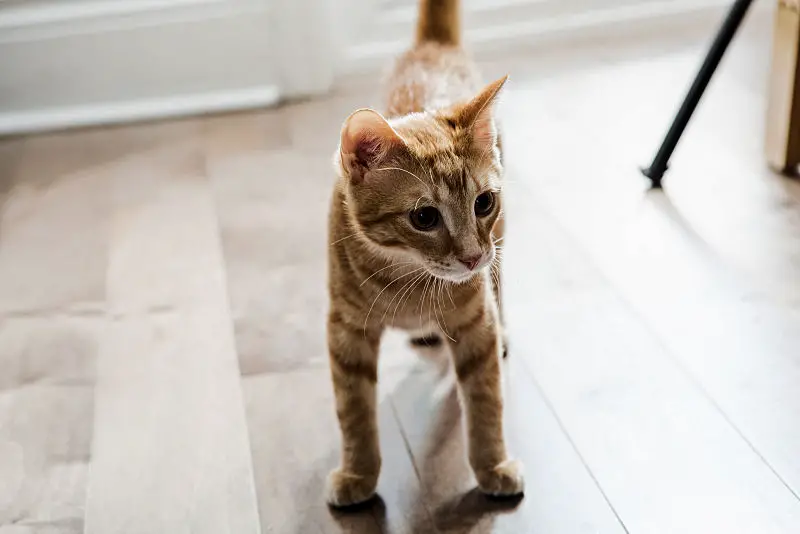
While dogs may be considered omnivores (both plant and meat eaters) by scientific definition, cats are actually strict carnivores (meat eaters). And yes, this includes your baby kitten too! But being a carnivore doesn’t mean we should only feed them meat and fish, it means we need to be educated about what protein requirements are needed for our cats to live a healthy life.
Cats need taurine — an essential amino acid for all cats — but they actually have a limited ability to manufacture it in their bodies. Taurine is found exclusively in animal-based proteins and is necessary for the health of your cat’s cardiovascular system and their vision. Luckily for kittens, it is found in well-balanced kitten recipes and the rest of their diet can be obtained from plant-based protein. However, the correct combination is important. Remember that too much of a good thing can be bad! If your kitten is on an a nutrient-rich recipe, there is no need to use supplements unless advised by your veterinarian.
2. A Healthy Appearance
From a healthy shine to healthy poops, looks matter when it comes to your kitten’s health. Your kitten should look healthy and be active. With their high activity level in mind, make sure you have fresh water available at all times. Kitten recipes that have a rich source of Omega-3 fatty acids will help your kitten with their brain development during their growing months.

Salmon oil and flax seed is a great example of Omega-3, with the added bonus of giving your fur baby that lovely shiny coat.
3. Prevention
Prevention is always the best option when it comes to health. Trichobezoar, also known as “hairballs,” is a common problem that can be life-threatening in your cat if left unattended. Hairballs occur when a cat swallows hair that is unable to pass through the digestive system and builds up into a mass in the stomach, which is then regurgitated. If a hairball grows too large it may need to be surgically removed. Because kittens tend to have less hair to swallow and don’t do as thorough of a job at grooming, hairballs are very uncommon in kittens, but it’s never too early to get them on a diet that will help boost their digestive system. An added bonus of Omega-3 fatty acids in kitten recipes is the important function of helping to decrease shedding. Not only is that fantastic for your home, it is also fantastic for your pet. Remember to regularly brush your cat to help further prevent hairballs.
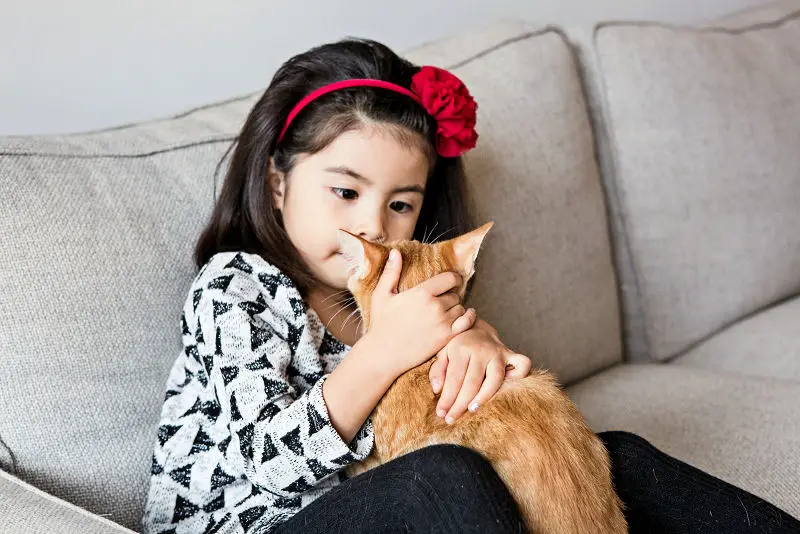
Bladder conditions are also fairly common among feline pets. To maintain healthy bladder function and help prevent bladder issues, select a diet that includes specific ingredients for your kitten. Incorporating a diet with ingredients such as cranberries, a natural acidifier, and celery seeds, will help sustain healthy fluid levels and work to maintain proper pH and moderate ash levels, supporting a healthy bladder.
4. Adulthood
While your furry-feline might seem like your baby kitten forever, the truth is that kittens enter adulthood very quickly — between 6 months to one year. Knowing when to transition your kitten onto a cat recipe will be beneficial for their physical growth and mental development into adulthood. At between six to nine months of age, you can start to switch to an adult cat diet.

It’s best to transition your pet on to their new diet gradually over the course of a few weeks by adding the new diet while using less of the kitten formula each day.
Summary
Getting your kitten started on a healthy diet while they’re young will help help keep your furry friend healthy and happy for many years to come.
